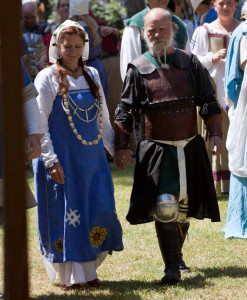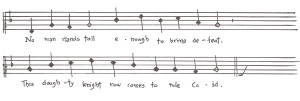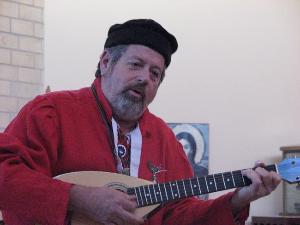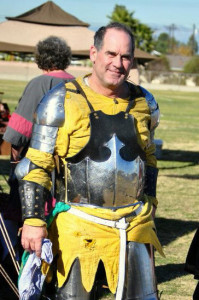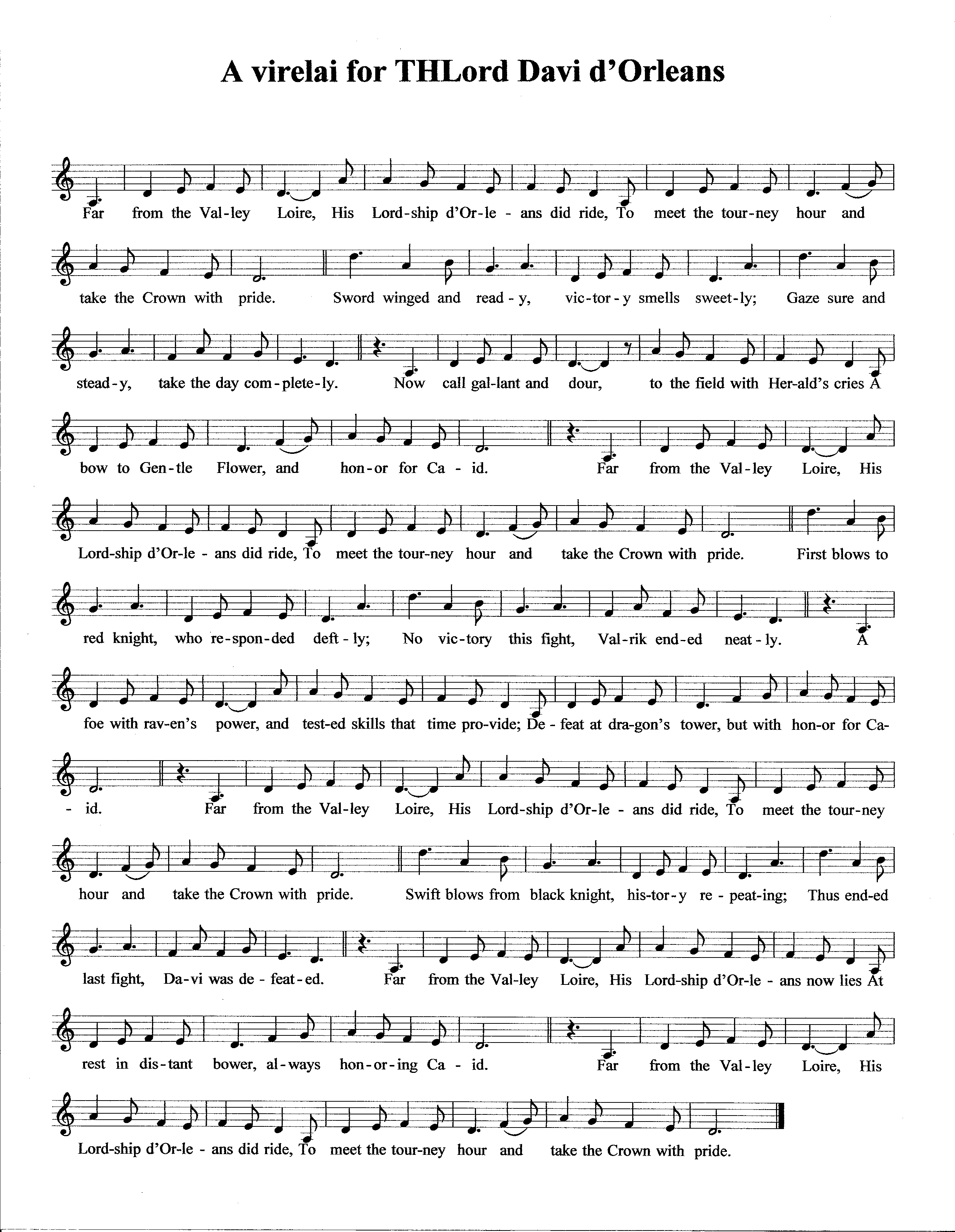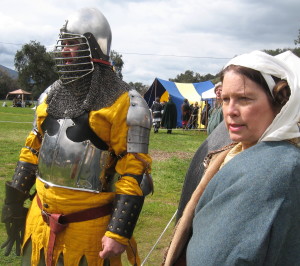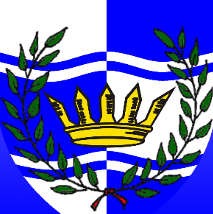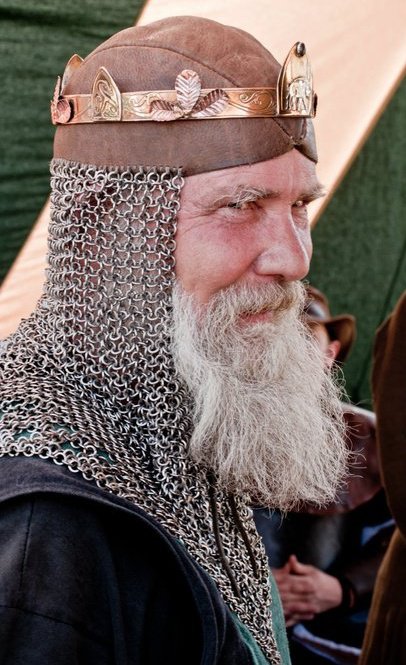 I wrote this “song of deeds”, or chanson de geste, for Duke Edward’s victory in Crown Tourney. The time period and origin were appropriate for his persona and, if you’ve ever seen him fight, you would agree that this praise poem is a perfect choice to describe the skill he shows on the field!
I wrote this “song of deeds”, or chanson de geste, for Duke Edward’s victory in Crown Tourney. The time period and origin were appropriate for his persona and, if you’ve ever seen him fight, you would agree that this praise poem is a perfect choice to describe the skill he shows on the field!
I did get the chance to perform the chanson during the procession at Edward and Mora’s Coronation. I was honored to do so!
————-<>————-
Duke Edward Senestre
Victorious in Spring Crown Tourney, A.S. XLV
(chanson de geste)
From Normandy, Edward is called afield,
Where Harold’s blood once quenched Duke William’s zeal;
He stands athirst, assured of day’s reveal
When once again beside Mora he’ll kneel;
No man stands tall enough to bring defeat;
This doughty knight now comes to rule Caid.
His banners wave, and vassals praise their lord;
All eyes now fixed upon his long, broad sword.
First, Scotia, and then, young Ian fall;
Red Wolf and Lioness will bear the pall.
No Serpent’s wing will catch the flight of Owl;
Nor Dragon’s Eagle, over Caid, soar.
This fearless Duke, now high above them all
Will once, again, lead armies into war.
One moment’s pause to hear the Lion roar
Was not enough to quell his long, broad sword.
Two years the toll, the journey now compleat,
The Persian will not find here what he seeks;
Nor Rider’s Knight, to her his promise keep;
Beloved Sloth, no glory for your deed.
No man stands tall enough to bring defeat;
This doughty knight now comes to rule Caid.
– THL Beathog nic Dhonnchaidh
. . . a 14th century bard who can often be seen traveling far from her home in the Highlands with her lord husband and muse. If a good tale crosses her path, she will sing a song about it, pull out its hair and spin it, or throw it in a pot and cook it up.

